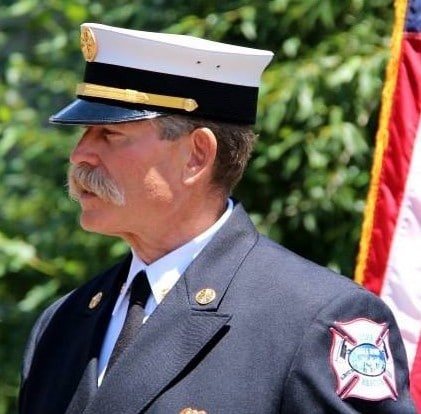Guest Blog by Chief Karl Bauer
We study, teach and write about how to become better leaders. We espouse collaborative visioning, champion the empowerment of subordinates and challenge each other to harness collective wisdom when setting organizational goals. We call upon leaders to provide clear direction, cultivate a climate of support and work tirelessly to create opportunity for others. Whether in academia or on the assembly line, it seems the aforementioned principles weave their way into every leadership dialogue, as well they should.
So, what’s love got to do with it?
We tend to avoid talking about love as a leadership principle, let alone as an imperative. The concept of love may arise in the context of deeply enjoying one’s chosen profession or organization, but we tend to not talk about leaders actually loving those whom they lead. Should we?
Perhaps the real question is, should leaders strive to love those they lead?
Retired Four-Star General Eric Shinseki, who served as the Army’s Chief of Staff, says it best:
“You must love those you lead before you can be an effective leader. You can certainly command without that sense of commitment, but you cannot lead without it. And without leadership, command is a hollow experience, a vacuum often filled with mistrust and arrogance.”
We may like to think about “commanding” as strictly a military concept, but doing so would miss the point of General Shinseki’s astounding quote. Being in charge, serving in a leadership role in any type of organization, whether the leader wears a uniform or a business suit, can easily seduce one into thinking they occupy the endeavor’s most important position. It’s the illusion of having ultimate authority that often causes leaders to focus on how subordinates relate to them, rather than on how they relate to those they lead.
When leaders remember their responsibility to love those they lead—notice that Gen. Shinseki uses the word “Must”—they’re left with little room for indulging in haughtiness. Loving others simply doesn’t allow for egocentrism. But, what happens if a leader doesn’t “feel the love?”
As leaders, we can, and should, choose to love those we lead; in doing so we can have confidence that our emotions will soon follow. While the concept of emotions following thought may seem counter-intuitive, the idea of making a conscious choice to love those we lead makes perfectly good sense in the context of leading an organization. When we choose to love those we lead, we also choose to change our focus from ourselves to others and we soon find ourselves striving to provide those we lead with what they need to succeed. Suddenly, developing collaborative vision, defining goals, providing opportunity, all those great leadership concepts begin to make sense.
The idea of choosing to love those we lead may not find its way into a popular love song, but it should find a prominent place in the standard leadership lexicon. It is the safeguard against the hollow experience that General Shinseki so wisely admonishes us to avoid.
-guest blog by Karl Bauer
++++++++++++++++
Karl Bauer serves as Fire Chief for the Eagle River Fire Protection District in Eagle County, Colorado.
Bob Vanourek and Gregg Vanourek are leadership practitioners, teachers, trainers, and award-winning authors. They are co-authors of Triple Crown Leadership: Building Excellent, Ethical, and Enduring Organizations, a winner of the International Book Awards, and called “the best book on leadership since Good to Great.” Take their Leadership Derailers Assessment or sign up for their newsletter. If you found value in this, please forward it to a friend. Every little bit helps!

